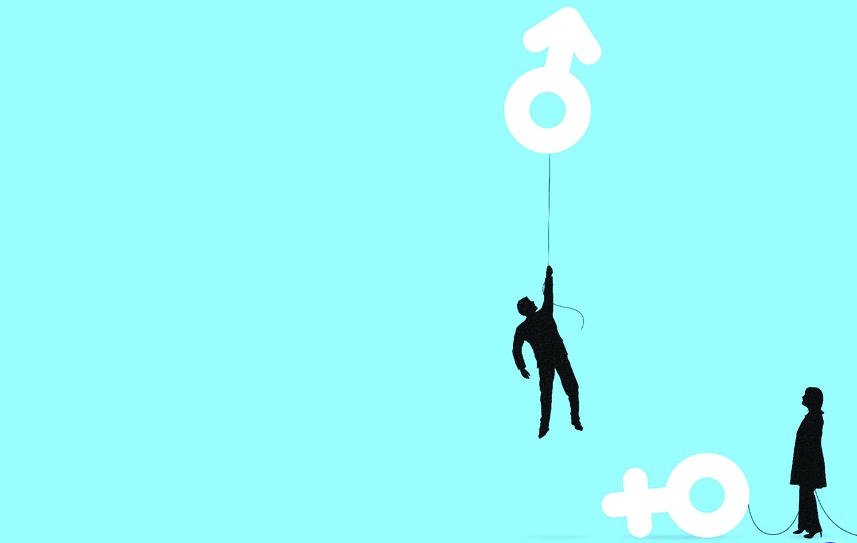By, Emma Hennessey
We all have heard the most famous statistic about the wage gap: that women, on average, earn 79 cents for every dollar men make for the same work. This does not even account for the fact that an African-American woman only makes 67 cents for every dollar a white man makes, and a Latina woman makes just 61 cents. These statistics have been proven, multiples times, in studies from institutions from the Harvard Business School to the Brookings Institute. But still, the wage gap is often refuted, despite the ample evidence to the contrary. In a way, it makes sense: it can be difficult to believe the wage gap exists to the extent that it does when there is not one glaring and obvious cause to point to. Women do not make less money for the same amount of work because of blatant discrimination; that would be too easy. Instead, the wage gap—which, trust me, does exist–is the result of a conglomeration of subtle societal factors, which is part of the reason it is such a pernicious issue: it is not just a problem of women making less money, it is a symptom of larger forms of gender inequality, which pervade every aspect of our lives. One of those is the confidence gap.
How does confidence impact income? For one, studies show that when women get out of college, they ask for 20-30% less money than men do. Not only this, but when asked how much money they deserve for their work, they also answer considerably less as well. Arguably, there is a good reason they do this–one set of experiments found that managers are less interested in working with women who ask for higher amounts when negotiating salaries, when the issue does not matter when they are dealing with men. This not only impacts salary negotiations, but also job promotions. While women who seek out promotions when they have met almost 100% of the qualifications listed, men will apply for promotions when they have only met about 60%. Men consistently overestimate their abilities, while women underestimate their own. When women hold back for applying for positions they are qualified for and leave the opportunity open for men, it only reinforces our ideas of which gender is more naturally suited to certain types of work.
This confidence gap not only emphasizes present inequalities, but helps create them. Take, for instance, the common stereotype that men are more adept with spatial abilities than women. We all have heard someone say men are naturally better drivers, that they do not get lost as easily, that they are better with maps. As my father loves to argue, it’s Darwinian. However, perhaps there’s more to this cliche than antiquated evolutionary biology. In a study done, researchers found that while female students initially did not do as well on a spatial skills exam, when the male and female participants were instructed to answer every question, instead of leaving the ones they were unconfident about blank, the scores gap between genders almost disappeared. Even more, when researchers asked participants to take a similar exam, but rate how confident they were about their answers, the scores of female participants dropped again. Women also do better on spatial tests when they are asked to imagine themselves as a stereotypical male, and even do more poorly on spatial tests just when they report their gender on the first question as opposed to when they are never asked to do so. Sure, maybe in the Flintstones men were in charge of hunting while women stayed at home, but I am hesitant to believe that is the only reason half of women today think they are naturally worse at spatial skills because they are women. Maybe part of the reason is because we think we are supposed to be.
So what is the answer to the wage gap? Of course, it is not simply closing the confidence gap, because issues I haven’t even touched on, such as gendered child-rearing responsibilities, maternity leave, how little we pay caretaking jobs, as well as blatant discrimination in hiring practices, all contribute to the wage gap, too. In truth, however, I don’t even believe that telling women to be more confident should necessarily be part of the answer. Inflated overconfidence and brash arrogance should not be prized more than humility and self-introspection without question. I want workers who self-examine. I want to be around people who are modest, self-effacing, and do not attempt to do things they are overwhelmingly under qualified for in the sake of power. Maybe it’s not just confidence that we need to reexamine, but what we prioritize in what it means to be good leader. I don’t know about you, but personally I would rather have a more reserved, private, and industrious candidate for, say, a position like president, than an inane narcissistic buffoon who may be confident, but lacks any other quality that would make him a suitable person for the job.



